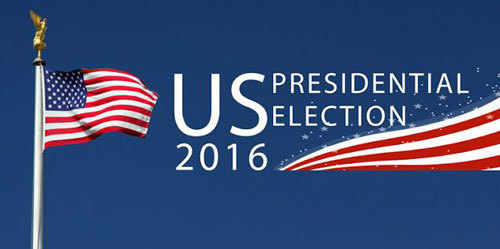Turning 18 is a big deal. It means you are legal to serve on a jury, buy spray paint in the U.S., join the army and vote. In the U.S., women were only allowed to vote as early as 1920. Unfortunately, little more than half the eligible voters do so.
On the first Tuesday in November Americans get to exercise their right to vote and to have a say in exactly who will be elected to govern. State elections take place only on even numbered year. The primary is conducted in September and the election happens in November. A primary is when voters choose the political leaders to vote on in the election.
Think you don't need to vote? Think again. Just one vote can and often does make a difference in the outcome of an election. Here are some examples...
 Get out and vote!
Get out and vote!
In Federal Elections:
In the 1829 election for the U.S. House of Representatives in Kentucky's 2nd District, Jackson Democrat Nicholas Coleman defeated National Republican Adam Beatty 2,520 to 2,519.
In the 1854 election for the U.S. House of Representatives in the 7th District of Illinois, Democratic candidate James C. Allen defeated Republican William B. Archer 8,452 to 8,451.
In the 1882 election for U.S. House of Representatives in the 1st District of Virginia, Readjuster Robert M. Mayo defeated Democrat George T. Garrison 10,505 to 10,504.
In the presidential election in November 2000, it all came down to the state of Florida where George W. Bush and Al Gore were only a few hundred votes apart. After 5 weeks of recounts George W. Bush was named president. Imagine if you lived in Florida and didn't vote in that one? Your vote really might have changed the outcome.

In Nonfederal Elections:
In 1977, Vermont State Representative Sydney Nixon was seated as an apparent one vote winner, 570 to 569. Mr. Nixon resigned when the State House determined, after a recount, that he had lost to Robert Emond, 572 to 571.
In 1994, Republican Randall Luthi and Independent Larry Call tied for the seat in the Wyoming House of Representatives from the Jackson Hole area, with 1,941 votes each. A recount produced the same result. Mr. Luthi was finally declared the winner when, in a drawing before the State Canvassing Board, a ping pong ball bearing his name was pulled from the cowboy hat of Democratic Governor Mike Sullivan.
Trying to understand the entire legal system and the procedure for this system can be hard. Even voting can be a complicated matter. The legal jargon on government sites scares most people away, however, the site www.fec.gov/elections.html is easy to understand. It also answers any question you ever wanted to know.
Have Your Say
Who was your fave president in history? Let us know!

































